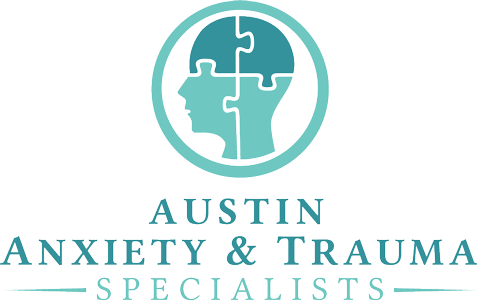After what felt like an endless winter, spring is finally here. Soon Austin’s parks and riverside trails will be buzzing with people hoping to enjoy the sunshine before the summer heat sets in. But for many, the arrival of spring also signals the return of allergy season and all the discomfort that comes with it.
As pollen counts climb, so do pesky symptoms like sneezing, congestion and itchy eyes. But allergies don’t just affect your body. They can also impact your mood and mental health. For some, allergies can mean restless nights, lingering fatigue and a sense of isolation when symptoms interfere with everyday activities.
Research shows that people who suffer from allergies are at higher risk for developing anxiety and depression. With one in every three Americans affected by allergies, too many suffer silently, unaware that their seasonal struggles could be responsible for the exhaustion and sadness they carry.
Keep reading: The State Of Mental Health In Texas: Anxiety & Depression Statistics
What Are Allergies?
When our immune system mistakenly identifies a harmless substance as a threat and overreacts, we get allergies. The release of histamines usually leads to symptoms like sneezing, congestion, runny nose, itchy eyes, itchy skin or hives.
Some common allergy triggers are:
- Pollen
- Pet Dander
- Dust mites
- Mold spores
- Insect stings
- Certain foods
For those with seasonal allergies, pollen is often the biggest culprit. This spring fiend turns what should be a soothing time of the year into an exhausting challenge.
Keep reading: The Big 5 Of Self-Care
How Allergies Impact Our Daily Life
Seasonal allergies are more than a daily nuisance. As the toll of symptoms builds, the fatigue from pushing through can make the simplest tasks feel exhausting.
Sleep Disruption
Even when we take medication, allergy symptoms can persist. Congestion, post-nasal drip and sinus pressure can make it hard to breathe, making it even harder to get a good night’s rest. Studies have shown sleep deprivation is linked to increased anxiety and depression. After a few nights, the fatigue from your poor sleep can worsen the stress you already feel and make it harder—as if the allergies weren’t enough—to get through your day.
Social Isolation
Because many people avoid outdoor activities, gatherings or leaving their home when allergy season comes around, they may find themselves feeling left out or detached from their friends and family. Not having your usual community with you, especially during a difficult time, can feel lonely and ultimately contribute to feelings of sadness or depression.
Increased Anxiety
Living with constant discomfort from allergy symptoms and a lack of proper sleep can really heighten anxiety levels. The anticipation of symptoms—could be sneezing fits in public or even asthma attacks—only adds on to the stress of dealing with allergies. If you already struggle with anxiety, you may find allergy season worsens it or makes it even harder for you to manage than usual.
While allergies are often seen as just a physical condition, their impact on our daily lives runs deep. Managing our allergy symptoms is key, but it’s just as important to care for our mental health, otherwise, we’ve only taken care of ourselves halfway.
Keep reading: Am I having an anxiety attack?
Ways to Manage Your Allergies To Care For Your Mental Health
Taking care of your allergies is a great first step. But you’ll feel a lot better if you take care of your overall health too. Here’s how:
- Avoiding possible triggers: If possible, limit exposure to allergens by staying indoors on high pollen days, keeping your windows closed, and using air purifiers.
- Making small adjustments: Consider adjusting your routine instead of outright cancelling everything and staying home. Rather than taking a walk by the riverside, you can visit your local gym or go for a walk at the mall. Instead of going outdoors with friends, host them for a fun movie night or Sunday brunch at home. You don’t have to stop doing the things you love, but making some small adjustments could help you avoid the worst of the symptoms.
- Taking plenty of breaks: While it can be easy to disregard symptoms as annoying allergies, they can take a real toll on you. Give yourself time to rest and recharge, as you would any other time you’ve felt sick. Whether it’s a quiet moment at home with your favorite book or a short nap, breaks are essential for managing stress and caring for your mental health.
Sometimes, even after we’ve taken our medications and made adjustments, the weight of sleepless nights and the frustration of missing out on our usual activities can feel overwhelming. If you’re feeling burnt out from the stress of managing allergies, anxious thoughts or feelings of sadness, talking to a therapist can help you regain some balance.
Having someone to listen and offer support can make a world of difference. If you’re looking for specialized care to help you feel like yourself again, book an appointment with us at Austin Anxiety and Trauma Specialist today. Our expertise in Cognitive Behavior Therapy (CBT) and EMDR can help you navigate the anxiety and stress that comes with allergy season. You don’t have to do it alone. We can help.






